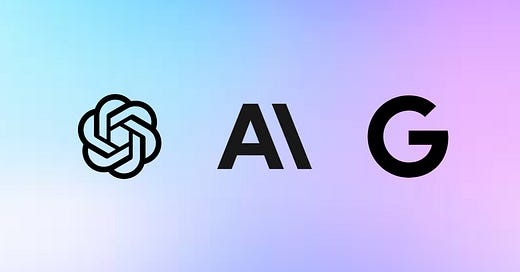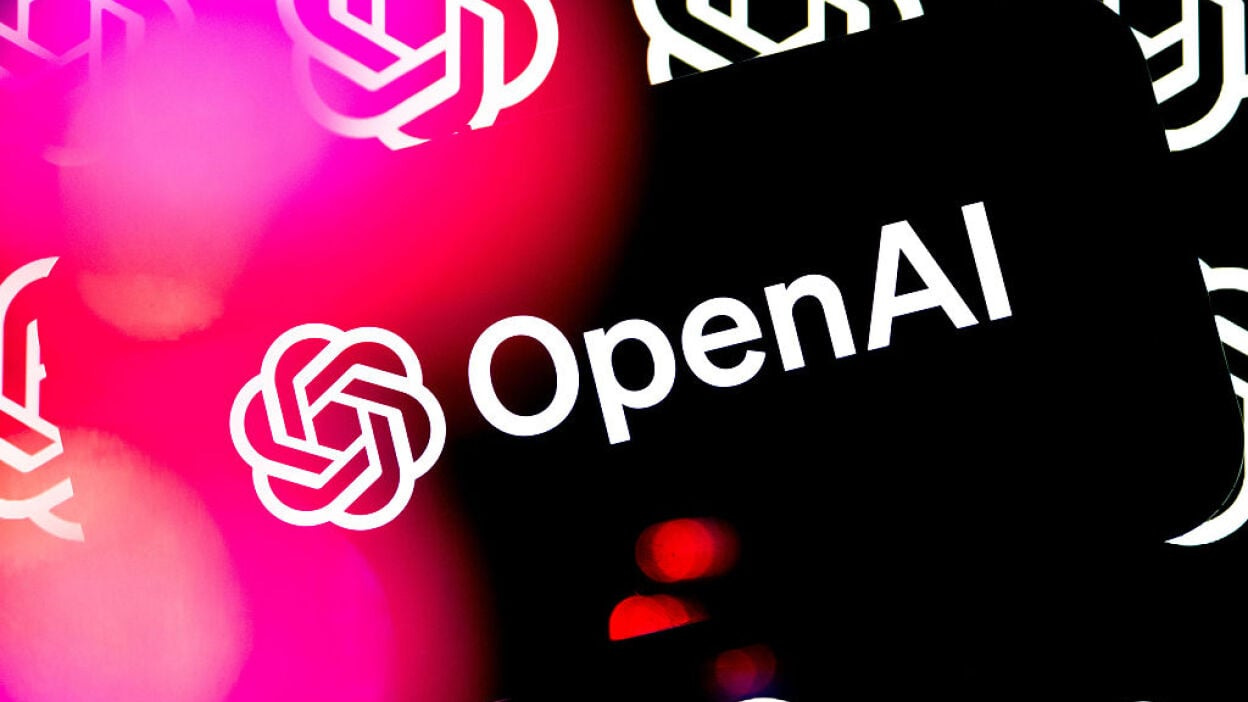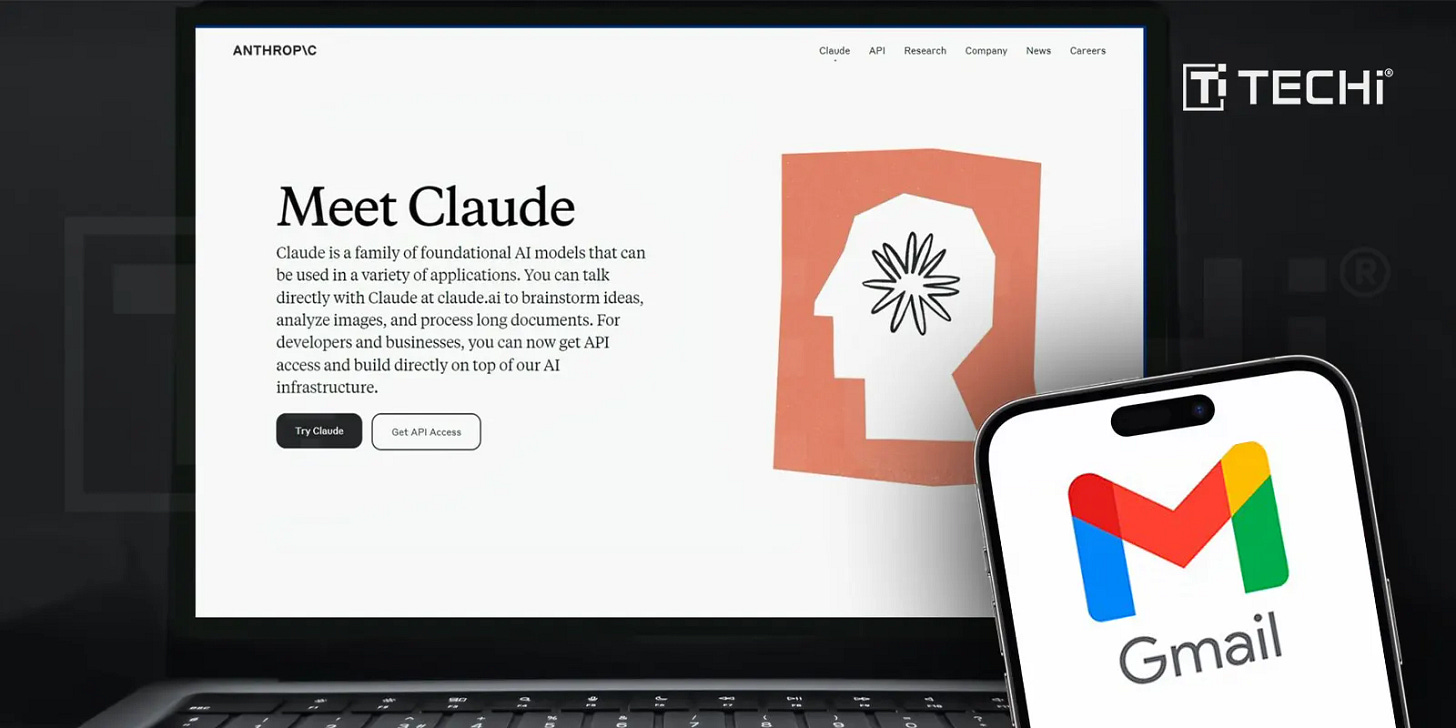🤯 OpenAI’s New Models Are Wild
OpenAI levels up with O3, Google doubles down on enterprise AI, and Claude moves into your inbox
In This Week’s Briefing:
OpenAI Launches O3 and O4-mini
OpenAI drops its most powerful models yet. O3 is a high-reasoning, tool-using flagship, while O4-mini is fast, efficient, and crushing benchmarks. Both are trained to plan, solve, and think like agents.Google Unveils Gemini 2.5 Pro and Flash
At Cloud Next, Google introduced its most advanced models to date. Gemini 2.5 Pro now leads on reasoning tasks, while Flash is built for speed. New multimodal tools and an AI chip round out a push toward full-stack enterprise AI.Claude Integrates with Gmail, Docs, and Calendar
Anthropic upgrades Claude into a true productivity assistant. It now connects directly to Google Workspace and includes a new research mode, letting it reason deeper while working inside your daily tools.Plus: 3 Additional Resources to Explore
OpenAI Drops O3 and O4-mini
OpenAI has officially launched its most advanced models yet: o3 and o4-mini. Both are part of the “o-series” and represent a major leap in tool-using, multimodal agents. They can search the web, write and execute code, analyze images, and even generate visuals, all autonomously in one chat.
O3 is the flagship model, trained for deep reasoning across coding, math, science, and visual tasks. It significantly outperforms previous generations, with 20 percent fewer major reasoning errors and the best performance yet on SWE-bench, Codeforces, and AIME.
O4-mini, while smaller, is fast, efficient, and cost-effective. It is ideal for high-throughput applications. Despite its size, it crushed benchmarks with tool use and even scored highest in the 2025 AIME math competition.
Both models are trained to think longer, act agentically, and handle large context windows. This brings OpenAI closer to creating assistants that don’t just answer questions, but plan, reason, and solve problems from start to finish.
The Implications:
OpenAI is positioning O3 and O4-mini as the foundation for more autonomous, high-performance AI agents. These models are not just about chatting, but executing complex workflows across research, engineering, and creative tasks. Developers and businesses now have tools that can reason deeply while choosing the best tools for the job, unlocking the next generation of intelligent automation.Learn More:
OpenAI: Introducing OpenAI o3 and o4-mini
Techcrunch: OpenAI launches a pair of AI reasoning models, o3 and o4-mini
Google Unveils Gemini 2.5 Pro and Flash, Plus Major Tool Expansions
At Google Cloud Next, DeepMind introduced the Gemini 2.5 family, raising the bar for reasoning, speed, and multimodal capabilities. Gemini 2.5 Pro now tops Chatbot Arena and sets new records on complex exams like “Humanity’s Last Exam.”
A faster variant, Gemini 2.5 Flash, was also released. It is tuned for speed and efficiency, designed for real-time use cases like customer support and high-volume enterprise tools. It trades some depth for responsiveness.
Beyond models, Google also added new generative tools to its Vertex AI platform. Users can now generate not just text, but also images, video, audio, and music. The update also includes a new Ironwood AI chip and broader support for agent-based workflows.
Taken together, Gemini 2.5 and these tools show that Google is focusing heavily on enterprise AI, aiming to enable businesses to use AI for every type of content and reasoning task.
The Implications:
Google’s ecosystem is evolving into a full-stack creative and reasoning engine for enterprise. With advanced models and multimodal capabilities under one roof, Google is creating a one-stop shop for building complex, AI-powered applications. This could accelerate adoption across industries and challenge OpenAI’s dominance in tools and infrastructure.Learn More:
Google Blog: Start building with Gemini 2.5 Flash
Anthropic Brings Claude into Gmail, Docs, and Calendar
Anthropic just gave its Claude assistant a major upgrade. It can now connect directly to Google Workspace, including Gmail, Calendar, and Docs. Claude can act on your actual data, reviewing email threads, reading documents, or checking your availability without manual uploads.
The goal is to embed Claude directly into your workflows and turn it into a true productivity assistant. Whether it's writing a summary of your last ten emails or preparing talking points from shared documents, Claude can now do it inside the tools people already use.
Anthropic also released a new Research Mode, designed to help Claude think more carefully and thoroughly about complex problems. This brings Claude closer to OpenAI’s advanced research and tool-use capabilities while maintaining Anthropic’s focus on safe and reliable outputs.
By integrating directly into the apps where work happens, Anthropic is betting that the future of AI is not just intelligence, but seamless utility.
The Implications:
Anthropic is turning Claude into a true personal work assistant, not just a chatbot. By pulling data from real-time email, calendar, and docs, Claude becomes context-aware and workflow-native. This integration strategy signals a new competitive front in AI where usefulness, privacy, and direct embedding into daily tools will determine long-term winners.Learn More:
Claude: Claude Takes Research to New Places
Techcrunch: Anthropic’s Claude can now read your Gmail
Beyond The Key Updates: More To Explore
OpenAI Launches GPT-4.1, Mini and Nano
Reuters | Read time: 2 min
OpenAI rolled out GPT-4.1 along with smaller variants GPT-4.1 mini and GPT-4.1 nano. The new models deliver 21 percent better coding performance than GPT-4o and improved long-context comprehension, focusing on real-world utility and developer feedback.Nvidia Plans $500 Billion U.S. AI Server Build
Reuters | Read time: 2 min
Nvidia said it will build AI servers worth up to $500 billion in the U.S. over the next four years. Partners include TSMC for Blackwell chip production in Arizona and Foxconn and Wistron for supercomputer assembly in Texas. This aligns with broader moves to onshore critical AI infrastructure.Google Faces Antitrust Ruling
Reuters | Read time: 2 min
A U.S. judge ruled that Google illegally monopolized digital ad‑tech markets, opening the door to potential divestitures of key ad‑server and exchange assets. Google has announced plans to appeal the decision.
Got something we missed? Hit reply and let us know.






